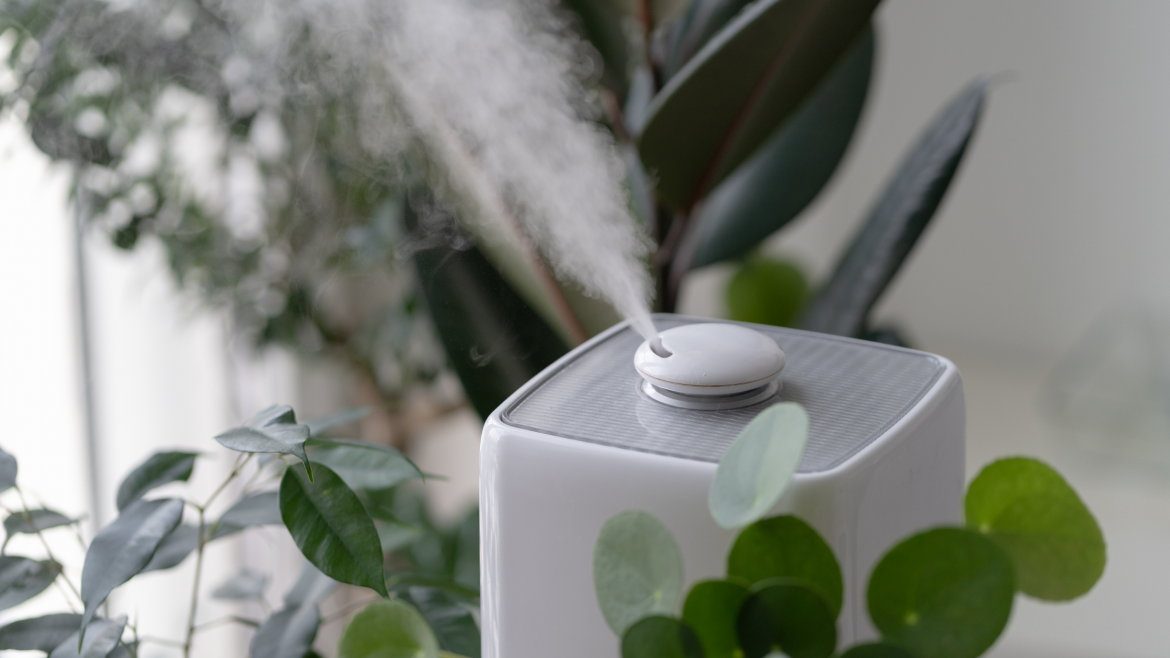It’s easy to assume you don’t need a humidifier in winter, especially if your windows fog up or your walls feel a bit cold to the touch. The idea of adding more moisture to your home might sound like asking for mould. But don’t be too quick to judge the air based on how it feels. While your house might seem damp, the actual humidity level can still be far too low, and that dry air could be making you feel worse without you even realising it.
Whether your skin’s suddenly flakier, your nose won’t stop blocking up, or your beloved indoor plants are looking a bit crispy, a humidifier could be the missing piece. Here’s why it’s worth having one on through the colder months – and why your sinuses, sleep, and sanity might all benefit from it.
ALSO SEE: How to dehumidify your home
Dry air is a hidden winter problem
Cold air can’t hold as much moisture as warm air, so when temperatures drop, humidity naturally falls too. Then we crank up the heaters, shut the windows, and huddle inside, creating dry, stuffy indoor environments that wreak havoc on our bodies and homes. Even if your home doesn’t feel dry, chances are your skin, lips, and lungs would tell a different story.
Low humidity is one of the lesser-known culprits behind seasonal sniffles, cracked heels, itchy eyes, and that tell-tale dry throat in the morning. If you’ve been piling on face cream or waking up with a blocked nose lately, don’t just blame the cold – blame the air inside your house. A humidifier helps by gently restoring moisture to the air, which can make a surprisingly big difference to your overall comfort.
Your sinuses need more support than tissues
Dry air doesn’t just make your skin feel tight – it also messes with your respiratory system. Your nasal passages, throat and lungs rely on a fine layer of moisture to trap viruses and keep things moving. When that dries out, you become more vulnerable to colds, flu, and sinus infections – all of which are more common in winter.
A humidifier can help ease congestion, soothe an irritated throat, and even reduce that annoying post-nasal drip that seems to kick in the moment you lie down. If you’re prone to sinus headaches or snoring, this small change could bring a lot of relief, especially overnight when your body is trying to rest and repair.
It helps your skin hold onto moisture
We talk a lot about barrier creams and hydration in winter, but if the air around you is too dry, even the best moisturiser can only do so much. A humidifier helps your skin retain moisture, rather than lose it to the environment. That means fewer dry patches, less flaking, and less of that uncomfortable, tight feeling across your face and hands.
You might also notice your lips staying softer and your hair being less prone to static. If your scalp feels drier in winter or you’ve noticed more hair fall, a humidifier may offer an extra layer of support, especially alongside a gentle haircare routine.
Your houseplants will thank you
It’s not just your body that notices when the air gets too dry. Many common houseplants, especially tropical ones like calatheas, ferns and peace lilies, struggle in low humidity. You might spot browning leaf tips or wilting leaves, even if you’re watering regularly. That’s because dry air draws moisture from the leaves faster than the roots can replace it.
A humidifier can mimic the moist conditions these plants are used to in nature, helping them perk up and grow better through winter. It’s also far more effective (and less time-consuming) than daily misting.
Damp doesn’t always mean humid
Here’s the twist: just because a room feels damp doesn’t mean it has healthy humidity. Dampness often comes from condensation or poor ventilation, not from high moisture levels in the air. In fact, many winter homes sit below the ideal humidity range of 40–60%, especially once heaters and fans are running.
A humidity monitor (called a hygrometer) can give you a clearer picture. If your levels are below 35%, a humidifier can bring things back into balance without tipping into mould territory. Many modern models come with built-in sensors or timers, so you don’t have to think about it too much.
A small fix with long-term rewards
A humidifier might not seem like the most glamorous purchase, but it’s a powerful tool for making your home feel healthier, calmer, and more comfortable. It supports your skin, protects your airways, improves sleep, and keeps your indoor greenery alive and well.
So even if your house feels a bit damp, it might be drier than you think. This winter, don’t just layer up, moisten the air around you, too. Your body (and your plants) will be better for it.
ALSO SEE:
Featured Image: Canva Photos

